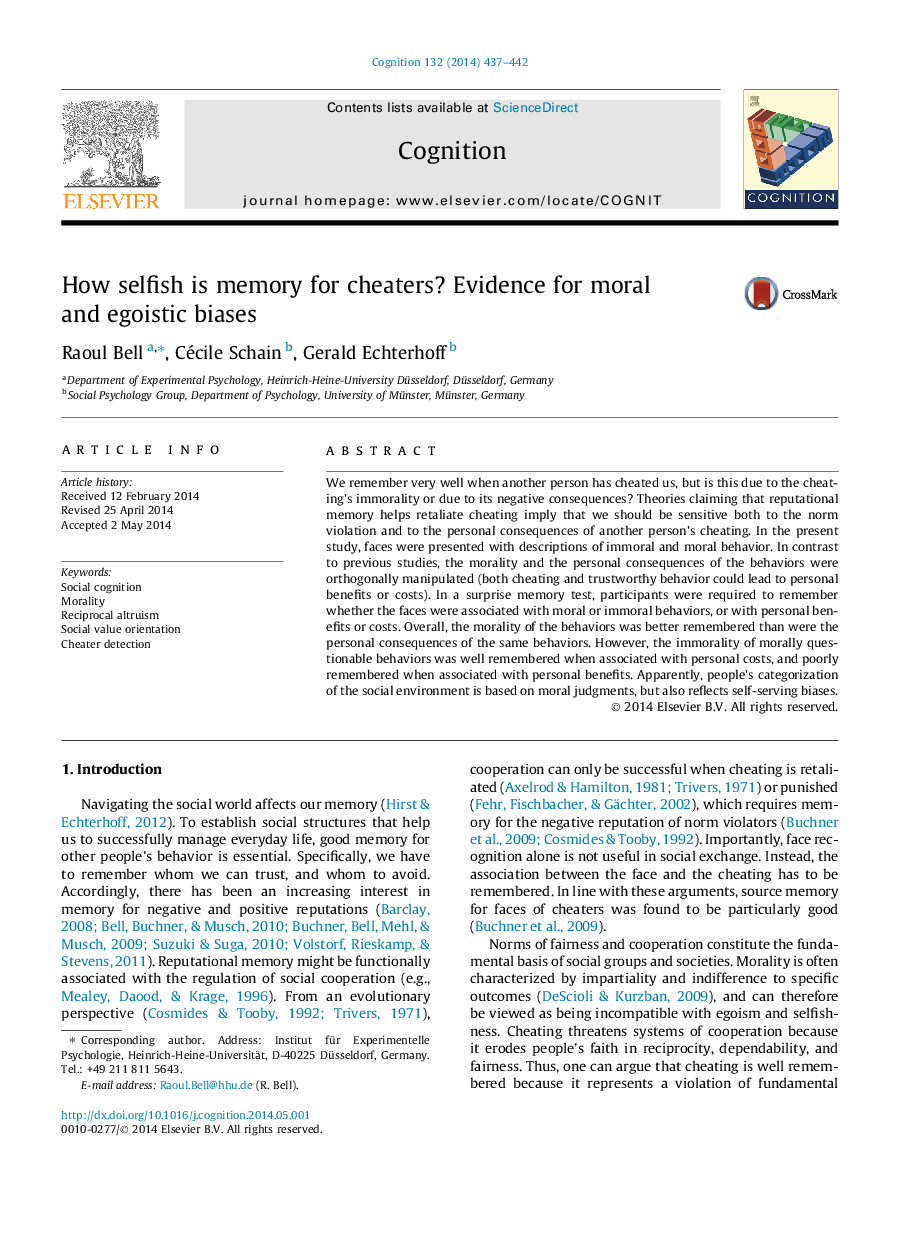| Article ID | Journal | Published Year | Pages | File Type |
|---|---|---|---|---|
| 10457539 | Cognition | 2014 | 6 Pages |
Abstract
We remember very well when another person has cheated us, but is this due to the cheating's immorality or due to its negative consequences? Theories claiming that reputational memory helps retaliate cheating imply that we should be sensitive both to the norm violation and to the personal consequences of another person's cheating. In the present study, faces were presented with descriptions of immoral and moral behavior. In contrast to previous studies, the morality and the personal consequences of the behaviors were orthogonally manipulated (both cheating and trustworthy behavior could lead to personal benefits or costs). In a surprise memory test, participants were required to remember whether the faces were associated with moral or immoral behaviors, or with personal benefits or costs. Overall, the morality of the behaviors was better remembered than were the personal consequences of the same behaviors. However, the immorality of morally questionable behaviors was well remembered when associated with personal costs, and poorly remembered when associated with personal benefits. Apparently, people's categorization of the social environment is based on moral judgments, but also reflects self-serving biases.
Related Topics
Life Sciences
Neuroscience
Cognitive Neuroscience
Authors
Raoul Bell, Cécile Schain, Gerald Echterhoff,
